We’re lucky enough to have a cat flap, meaning our cat can go out back when he needs to poop or pee. But recently I had to lock the cat flap up due to some fencing work on our property and go out for a few hours.
It made me wonder how long a cat can hold its poop after eating. My cat likes to do his business pretty soon after a meal, or at least, it seems that way.
To find out whether we’d have a nasty surprise when we got home, I did some research into how long a cat can hold his pee and poop. Plus, whether holding it in would make your cat sick – here’s what I discovered.
How long can a cat hold its poop? Most healthy adult cats can hold their poop and pee for 8 hours if they absolutely have to. Experts believe kittens can hold their poop for one hour for every month in age they are. This limit appears to level out ay 8 months of age, meaning 8 hours holding of poop at a maximum.
However, there are so many variables involved.
For example, is your cat older, have health problems, what was in their diet? All these factors can make a big difference in how long cats hold their poop in for.
Let’s look at things in more detail.
How long can a cat hold its poop after eating?
What will happen to your cat’s toilet break if you find yourself stuck at work? Or perhaps you had to leave the home urgently for a few hours? It could be that you are suddenly rushed off your feet, caught in a traffic jam, or are otherwise unable to get home on time for your kitten’s scheduled walk?
Likewise, what do you do when you are dealing with a new kitten who isn’t house-trained yet? Or similarly, an older cat who is unable to hold its bowels for longer than an hour or two?
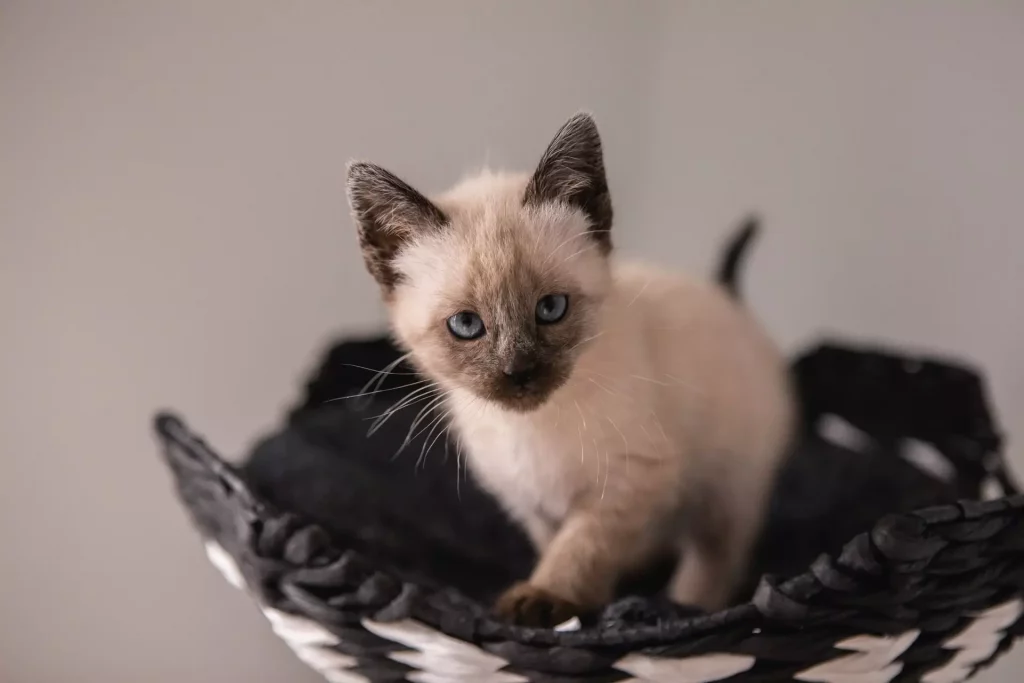
You need to be aware of how long your cat can hold its poop for, as this can help you deal more efficiently with situations like these.
Knowing this can also help you to plan accordingly so that your cat is not left alone for too long. Hopefully, this will then reduce any chance of coming home to an unwelcome surprise on your living room carpet.
How long can an adult cat hold its poop?
Most healthy adult cats can hold their poop for around 8 hours after eating. However, whether they hold it for this long when pushed to the limit is debatable.
If your cats are forced to hold their poop for too long, they will start to become uncomfortable and will want to relieve themselves as soon as they can.
Thus, most cats will not wait for this length of time and would rather save themselves this discomfort by relieving themselves sooner than later. This can even happen with cats that have been house-trained, which can be surprising for many owners.
So, if something like this does transpire and you are put in a situation where you cannot get home on time, be aware of how long you have been gone.
If your cat has had an accident, try to refrain from getting angry and remain patient. Instead, use comforting words to reassure them and then take them out for a walk as soon as possible.
After all, most of you will be aware of how it feels to need the toilet desperately. It can be stressful when you cannot find a place to relieve yourself, and the same is true for your cat when they need to poop or pee.
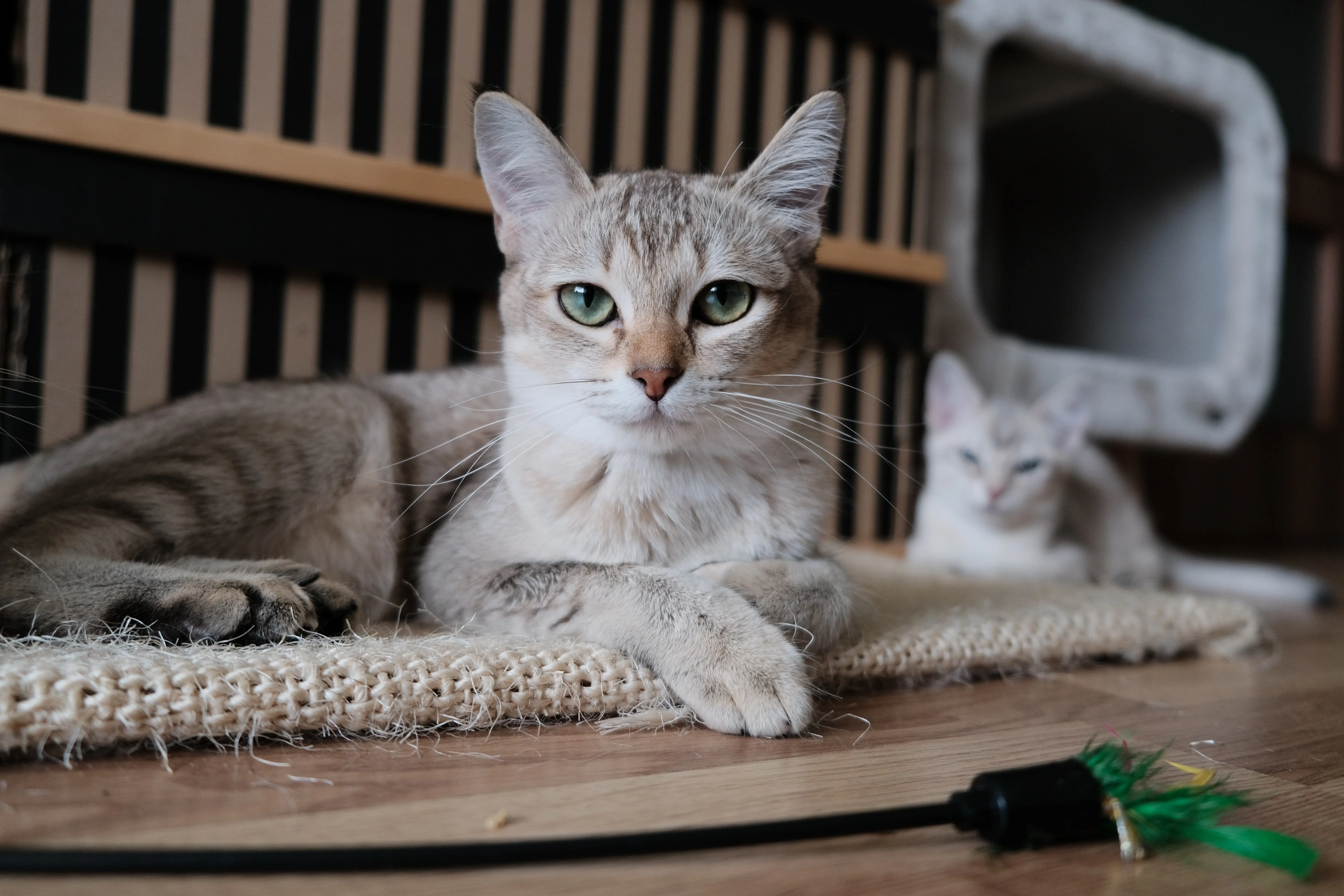
That being said, I suggest calling up a friend or relative if you do have to leave your cat for longer than 4 to 6 hours. It is not advisable to leave your cat for any longer than this, as they may start to develop anxiety and begin to damage objects or furniture around the house.
Kittens should only be left for a maximum of 1 to 2 hours, as they can develop problems in their behavior if they are left for too long.
Several other factors can affect how long your cat can hold its poop after eating.
For example, you might own a cat who is starting to get long in the tooth or a cat who is recovering from health problems.
How long can an older or sick cat hold its poop and pee?
if you are the owner of an elderly cat, you will probably be aware that they cannot hold their poop or pee for long periods of time.
When compared to younger cats, older cats have to poop more frequently, and some cats will have to relieve themselves after every meal.
In most cases, elderly cats are very similar to kittens, and they should be taken out to do their business quite often. This will then resolve any problems of them pooping in the house.
Likewise, if you are the owner of a cat that is currently sick or recovering from an operation, they will probably be unable to go very long without needing to empty their bowels.
You should talk to your vet if this is the case and monitor your cat for any signs of abnormalities in its stools.
How long can a kitten hold its poop and pee?
How long a kitten can hold its poop varies depending on how old it is. For example, a 1-month-old kitten should be able to hold its poop for about an hour. While a 2-month-old kitten should manage around 2 hours.
Interestingly, as each month passes the kitten’s ability to hold its poop lines up exactly with their age (i.e. 3 months x 3 hours, and so forth).
This continues to develop until the kittens are around 8 months old, where in theory, they will have progressed to being able to hold their poop for the same amount of time as an adult cat.
Thus, 8 months equates to 8 hours of poop holding time.
- How long can a 3 month old kitten hold its poop: on this basis should be 3 hours!
- How long can a 6 month old cat hold its poop: on this basis should be 6 hours!
Of course, this is not always a set rule.
All kittens are unpredictable, and unless they are house-trained, will likely poop whenever and wherever they feel like it.
A lot of this depends on their personalities, and it can take a lot of trial and error before they can be relied upon not to poop in the house.
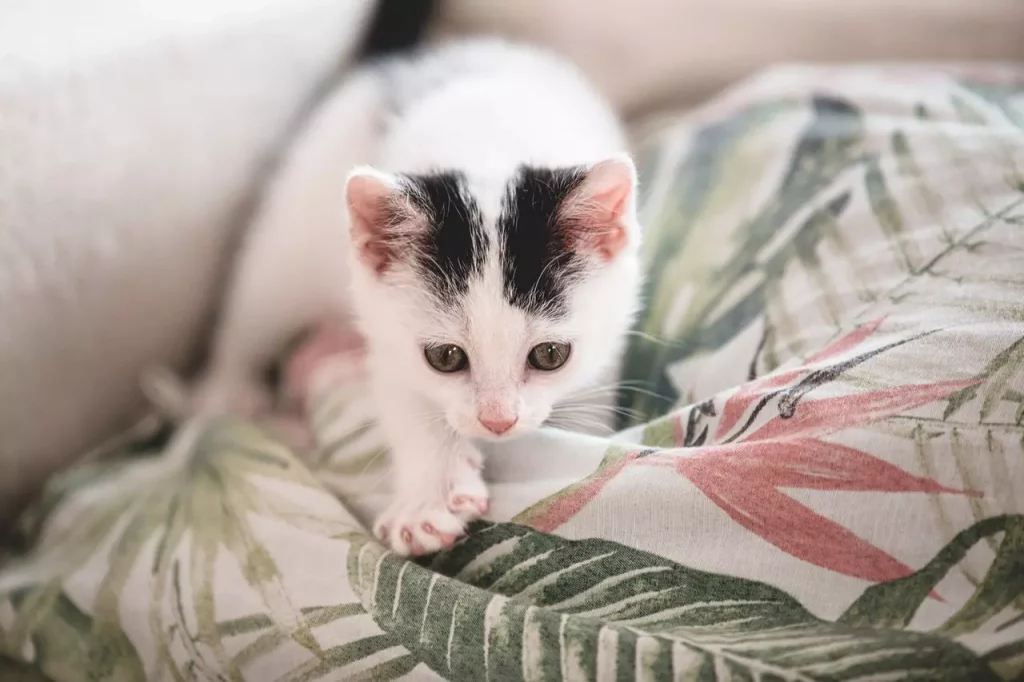
If you do own a kitten, you should always be on the lookout for signs that they are about to do their business.
These can be shown in various ways, such as sniffing around, meowing, circling in the same place, scratching at the door, and other restless behavior.
Handy Hint: Here’s how long after eating you can usually expect a cat to digest his food and then poop it out.
Can a cat get sick from holding in poop?
In theory, yes, a cat could get sick from holding in their poop. When poop is held in it can reabsorb into the body. It can lead to fecal bacteria overload and cause abdominal pain.
However, it’s unlikely that a cat would have the control and desire to hold his poop in that long that it would make him sick… unless they have a medical problem relating to constipation or similar.
What if my cat hasn’t pooped in 24 hours?
Healthy cats can poop as much as 5 times a day, so to not poop at all in 24 hours is very unusual. If you notice your cat hasn’t pooped in a day, it could mean they are constipated.
You should call your vet if it goes on longer than 24 hours.
How many times should a cat poop a day?
How frequently a cat poops in one day can often change due to several factors. Normally, the average cat will usually need to go between 1 to 5 times a day.
Kittens, on the other hand, will have to go more frequently, as will older cats (as stated earlier in the article).
However, some cats can suffer from constipation from time to time. If this does happen, they may not poop for up to 24 hours, or more.
To help them pass their poop quicker you can add fiber to their meals, with canned pumpkin, olive oil, and spinach being some of the most popular foodstuffs that contain high amounts of fiber.
Nonetheless, if there are no improvements in your cat’s constipation after having added fiber to their diet, I suggest taking them to a veterinary clinic, especially if they have not had a bowel movement for 2 days.
Here they will be able to properly diagnose what is causing the issue, and, hopefully, offer you some advice on how to deal with the problem.
Cats can also have issues with pooping too often. Diarrhea is often the main culprit, which causes them to pass soft and watery stools several times a day, if not more. Diarrhea in a healthy cat can be triggered by several different things, but it is mainly caused by eating rubbish or rotten foods while outside.
Sudden changes in their diet, stress, and the development of bacterial or parasitic infections can also have a negative effect.
Diarrhea normally lasts for a short period, often only affecting a cat for a few hours or a day at most.
However, some cats can develop chronic diarrhea, which can last significantly longer. If you notice your cat has diarrhea then you should make sure that they are drinking plenty of water.
Failure to do this can lead to your cat becoming increasingly dehydrated, which can be extremely dangerous for their health. Likewise, you should take your cat to the vet if you notice any blood in its diarrhea, as this can sometimes be the sign of a more serious underlying condition.
Conclusion
Let’s face it, if you are like me, this question isn’t something you find yourself wondering about very often. However, knowing the answer can prove surprisingly useful for several different reasons. (Especially for those of us who do not own a garden or yard).
But there will be a time when knowing how long a cat can hold its poop will be very useful, so I hope I’ve helped.
The bottom line is (no pun intended) there is no guarantee how long your own cat will hold its pee and poop… so don’t take this guide as 100% fact!
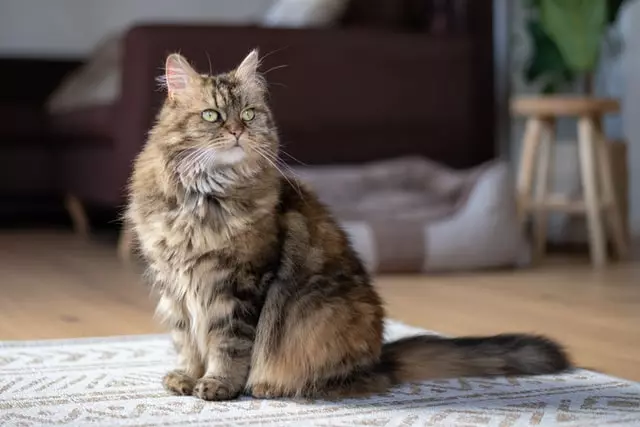
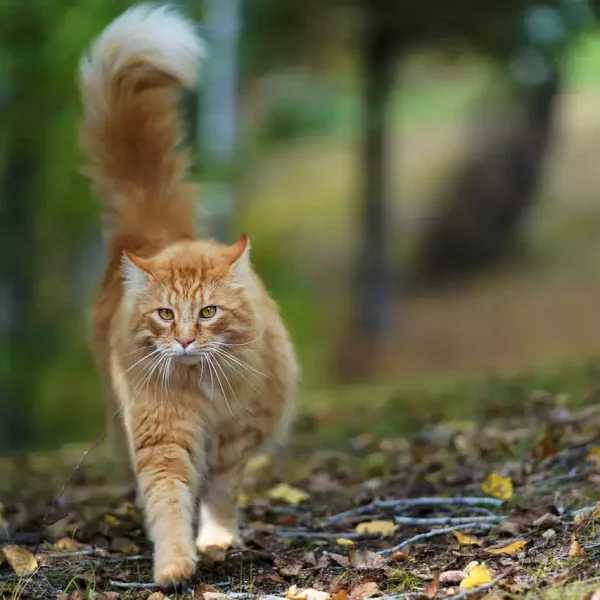
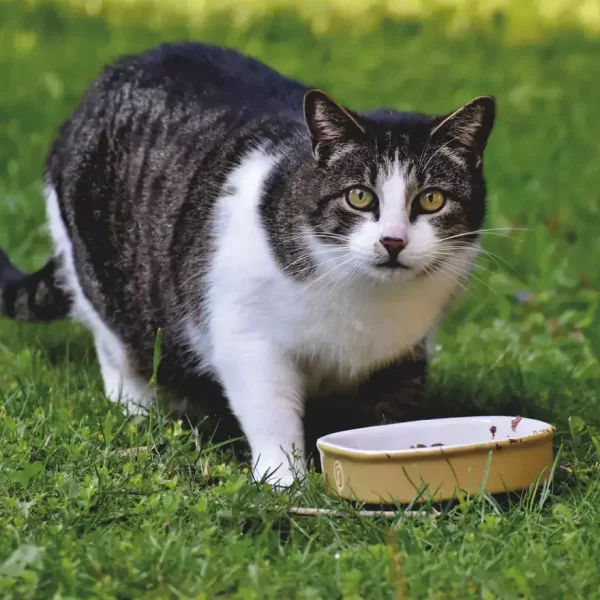
Leave a Comment